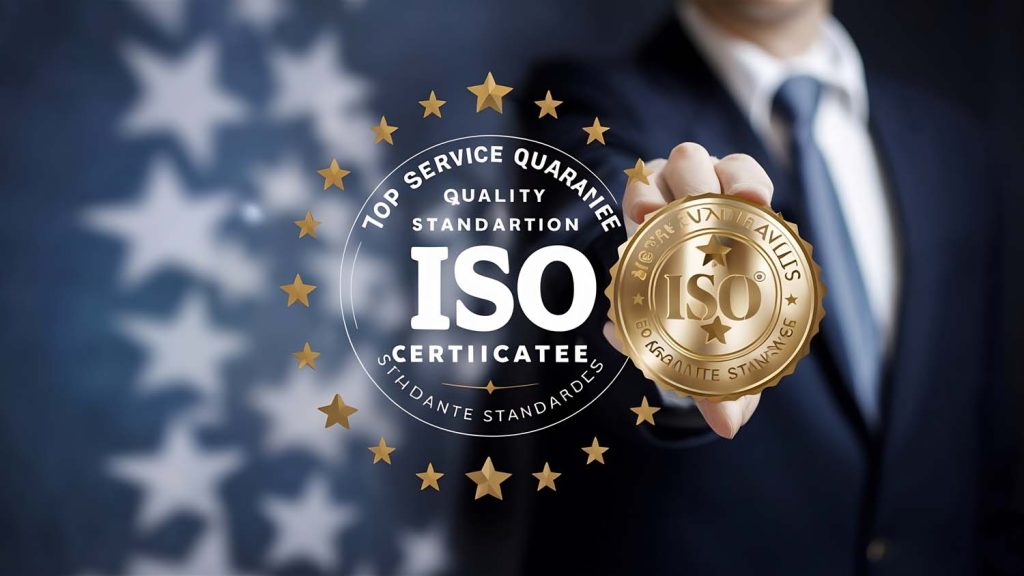Quality and ISO Standards

Quality Standards

ISO 9001
Quality Management System

ISO 14001
Environmental Management System
Helps organizations manage their environmental responsibilities by reducing negative impacts on the environment.

ISO 31000
Risk Management System
Provides comprehensive guidelines for managing all types of risks that an organization may face.

ISO45001
Occupational Health and Safety Management System
Specifies management system requirements to reduce occupational risks and improve worker health and safety.

ISO 19011
Management Systems Auditing
Provides guidance on how to plan and conduct audits of internal and external management systems effectively.

ISO 29993
Learning Services Outside Formal Education
Focuses on non-formal educational services, such as training courses and professional programs, ensuring their quality and efficiency.

ISO 37001
Anti-Bribery Management System
Helps organizations prevent fraud and bribery by implementing preventive mechanisms to enhance transparency and accountability.

ISO 8000
Data Quality Management
Sets standards to ensure organizational data is accurate, reliable, and consistent, improving operational efficiency and decision-making.

ISO 16363
Digital Preservation Management
Provides standards for auditing and certifying trustworthy digital repositories concerned with long-term digital data preservation.

ISO 56002
Innovation Management System
Provides a framework for creating and implementing an effective innovation management system from idea generation to value realization.

ISO 56005
Intellectual Property Management in Innovation
Guides the application of tools and techniques necessary to integrate innovation into innovation management systems.

ISO 26000
Social Responsibility
Offers guidance on how organizations can operate responsibly, contributing to societal health and welfare.

ISO 20400
Sustainable Procurement Framework
Provides guidance on integrating sustainability (social, environmental, and economic) into procurement processes.

ISO 22000
Food Safety Management System
Designed for companies in the food sector, covering all stages of the food supply chain, from farm to fork, to ensure product safety.

ISO 50001
Energy Management System
Helps factories and energy-intensive companies improve energy efficiency, reduce costs, and lower their carbon footprint.

ISO 13485
Quality and Safety Framework for Medical Devices
Defines quality management system requirements for organizations involved in the design, development, production, installation, and servicing of medical devices.

ISO 29990
Learning Services Management for Education & Training
A system for non-formal education and training services that supports transparency based on a global standard for providing learning services.

ISO 55001
Strategic Asset Lifecycle Management
Essential for factories and companies relying on physical assets (machines, equipment, buildings) to manage them effectively for maximum value and minimal operational costs.

ISO 39001
Road Traffic Safety Management System
Suitable for organizations with large vehicle fleets. Helps reduce accident risks and traffic-related injuries through improved road safety management.

ISO 30401
Knowledge Management System
Helps organizations implement effective knowledge management systems, ensuring expertise is retained and shared to improve productivity and innovation.

ISO 10002
Customer Complaint Management System
Provides a framework for handling customer complaints systematically, resolving issues quickly, restoring trust, and turning negative feedback into improvement opportunities.

ISO 44001
Collaborative Business Partnership Framework
Essential for companies with complex supply chains. Focuses on protecting goods and assets from security risks, ensuring operational continuity.

ISO 17100
Translation Services Management System
The global reference for professional translation quality, defining requirements to deliver high-quality translation services.

ISO 30405
Systematic Framework for Effective & Strategic Recruitment
Provides guidance on good practices in recruitment processes to ensure fair, effective, and transparent hiring for selecting top talent.

ISO 20671
Brand Evaluation System
Provides a framework to assess a company’s brand strength and value, helping understand how to build, maintain, and grow its market reputation.

ISO 37301
Compliance Management System
Ensures organizational adherence to laws, regulations, and ethical standards, fostering a strong culture of compliance and enhancing company reputation.

ISO 22716
Good Manufacturing Practices for Cosmetics
Defines requirements to ensure cosmetic product safety and quality from production to packaging, maintaining hygiene and control.

ISO 28000
Supply Chain Security Management System
Focuses on protecting goods and assets from security risks, ensuring operational continuity.

ISO 14064
Greenhouse Gas (GHG) Measurement
Helps organizations measure and track greenhouse gas emissions and develop reduction plans, important for environmentally responsible companies.

ISO 46001
Water Efficiency Management
Provides a framework to reduce water consumption and improve usage efficiency.

ISO 20121
Event Sustainability Management Systems
Ensures events are managed sustainably, considering environmental, social, and economic impacts.

ISO 21001
Educational Organization Management System (EOMS)
A specialized international standard for managing educational institutions effectively.

